To reach the village of Debed in northern Armenia from Yerevan is a journey of 180 kilometres by road along a highway hidden in green, seemingly stretching endlessly ahead. Once in Debed, the atmosphere appears disconnected from the rest of the world. It is here that Tatev Aghababyan founded her co-living retreat Debed Life and the Perle Debed restaurant after spending 20 years abroad.
Aghababyan says the decision to buy a house in an Armenian village was a sudden one. She was looking for a quiet place to enjoy nature, and one day, while visiting friends in Debed in 2015, she chose to purchase a house.
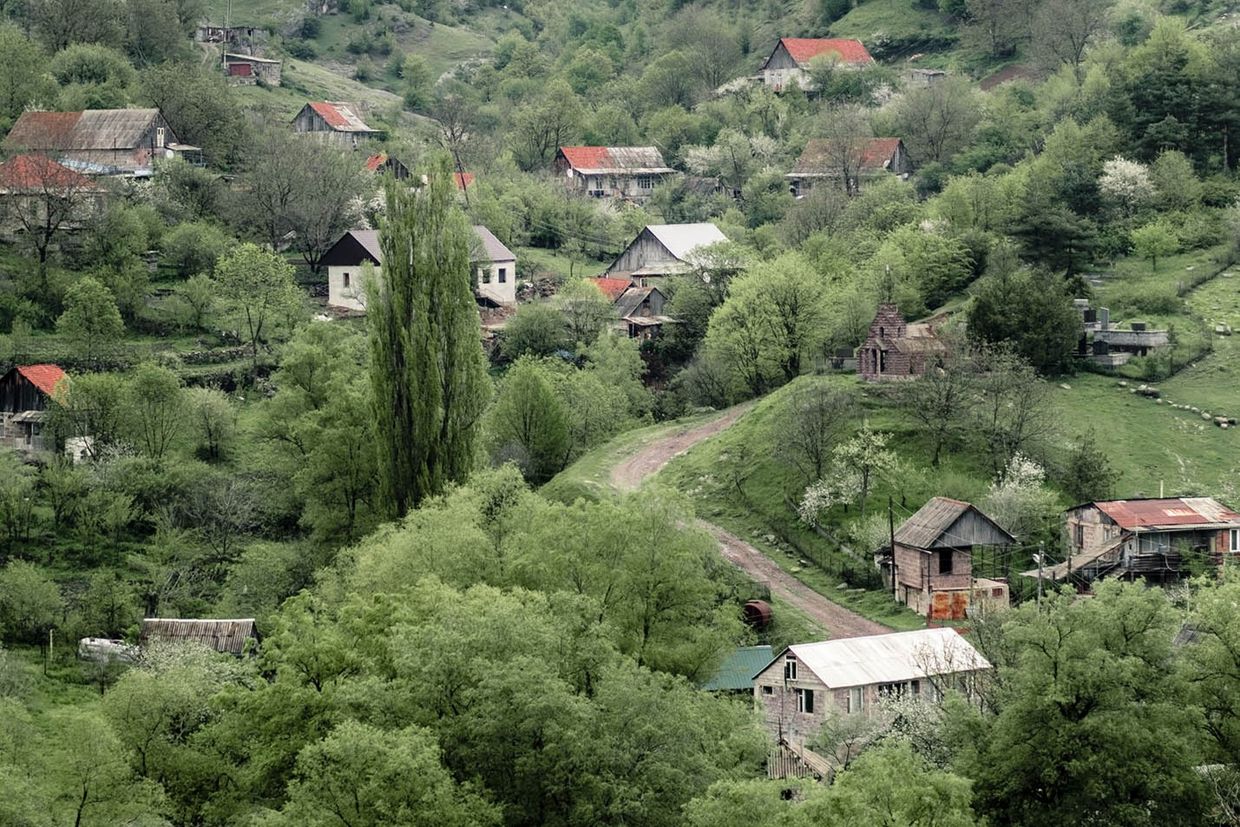
Not everyone understood her choice. When local residents and others heard she had returned to Armenia after a stint in Germany — after having been born and raised in Yerevan with a full career in advertising — it seemed strange and unusual to them that she would choose to come here. After all, back then, there wasn’t even a paved road — it took four and a half hours to get to Debed from Yerevan, and other infrastructure was also lacking.
However, Aghababyan says she had always been looking for a ‘secret little place’ in Armenia where she could feel good every time she visited.
‘I imagined continuing my nomadic lifestyle: traveling, living wherever I wanted. This wasn’t some business plan. I just wanted a personal corner in nature. Maybe a concept around my lifestyle’, she says, noting that Yerevan had never been ‘her city’.
Breaking stereotypes while respecting village traditions
Aghababyan emphasises that building a life in any village is incredibly hard, and sometimes even expensive.
‘For the first year and a half, we didn’t have garbage collection. Even today, the water issue hasn’t been fully resolved. And back then, you didn’t know what the future would hold’, she tells OC Media.
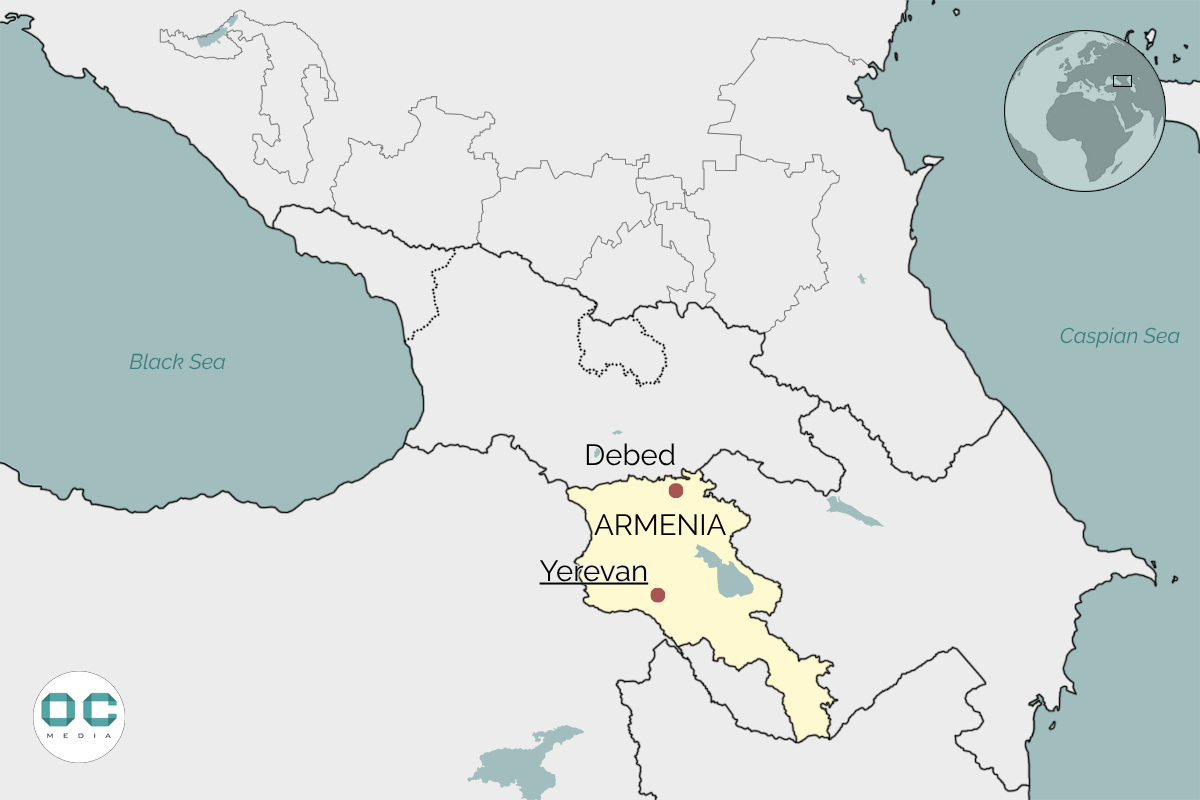
Debed has a population of just over 700 residents, most of whom are engaged in animal husbandry. In recent years, however, tourism has started to grow thanks to the renovation of the road leading to the village and the opening of new guesthouses like Perle.
‘Before, people rarely came to Debed because of the poor road — who would risk damaging their expensive car just to go to a restaurant? But now people are inspired to start businesses: one runs boat trips on the river, another opens a guesthouse, someone else organises mountain tours’, Anzhela Matinyan, the 29-year-old manager of Perle, tells OC Media.
Having spent some time in Russia, she decided to return to her hometown of Debed a year and a half ago in order to send her daughter to the newly renovated school. She also wanted to regain the feeling of warmth and familiarity she remembered from her childhood.
‘When visitors come to our village, they usually imagine small, run-down houses and broken roads. Perle is the first step in breaking that stereotype’, she says about Aghababyan’s restaurant.
‘When they enter, they find themselves in a completely different world yet the connection with the village remains’, she emphasises.

This continuity was important for Aghababyan when designing Perle. Notably, there is nothing in the complex that was artificially aged or styled for the sake of creating what others might imagine in a rural Armenian village.
Instead, Aghababyan built a modern structure around an already-existing traditional stone structure, creating something that fit the spirit of the area. Upon entering the restaurant, visitors can notice one section built with the same stones, in the same dimensions, as the old barns and cattle shelters that once stood there. Respect is given to what existed, but Aghababyan is not trapped in any mythic conceptions of ‘ethnic’ or ‘patriotic’ Armenian identity.
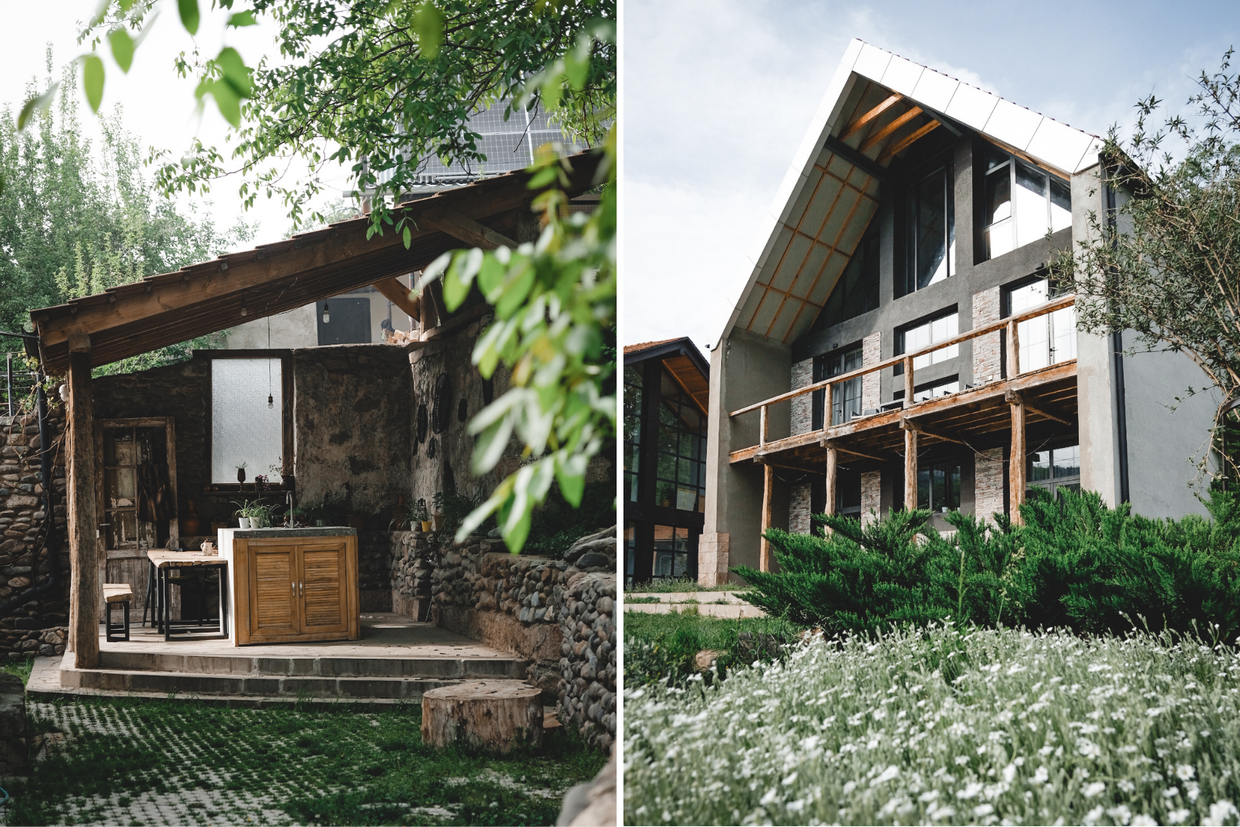
Similarly, when talking about having an impact on the village life, Aghababyan notes that while her business is not a large organisation with a huge footprint, she does employ nine local women, which means nine families in a village of around 120 households have a stable income.
‘Most of our staff are women. Sometimes men take temporary jobs like construction or fixing equipment. There’s still a stereotype here about working as a waiter, so men don’t apply for that kind of work’, Matinyan says.
She has been working at Perle for around one year, and has seen the positive reactions from locals to the complex due to the new jobs.
‘Women have started to change their lives in recent years, and beyond animal husbandry and household chores, they’re trying to find paid employment’, Matinyan notes.
‘Our menu is like a journey’
Aghababyan explains that having a guesthouse or a co-living space is one thing — creating a high-end restaurant like Perle is another. Perhaps it’s because you don’t expect world-class cuisine in this setting, she says, but the restaurant’s atmosphere and the multilayered flavours make you feel something entirely different.
‘Looking back, I realise that what I’ve done here was a kind of madness. It wasn’t the result of rational, calculated decisions. And Perle, in particular, was a whole other level of craziness’, Aghababyan says.
The menu at Perle is based solely on what Aghababyan herself finds delicious, largely influenced by her memories, including her time living in Europe as well as other travels abroad. Because no one shares her exact memory, she gets a non mass-market taste, which she believes creates a more intimate meal.
‘The dishes mostly reflect what I’ve loved eating, what I’ve considered delicious. Our menu is like a journey: it starts from Europe and ends in Hong Kong’, she says.
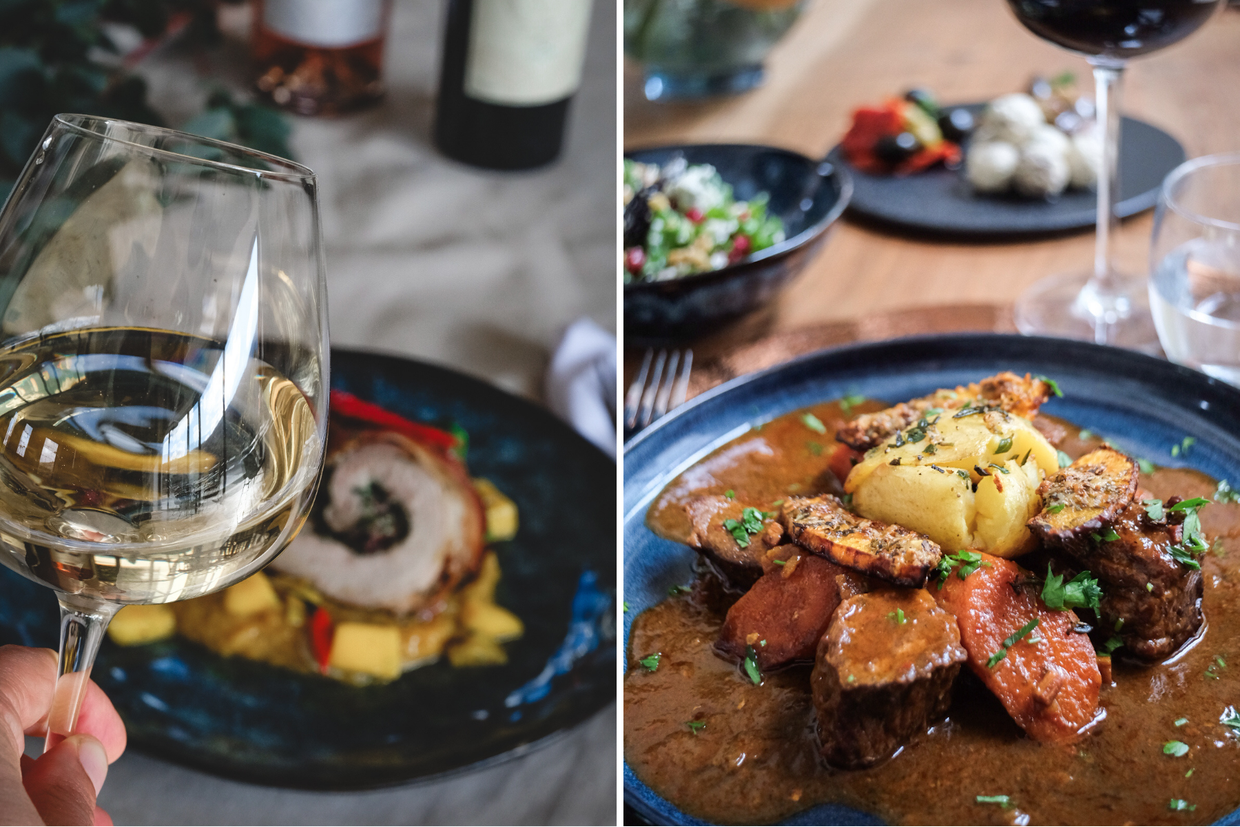
Though the menu is mainly international, Armenian dishes from Aghababyan’s childhood memories also have their own place, having been adapted and modernised. For example, Perle serves Van-style khash, a traditional dish popular with Armenians from what is now Eastern Turkey. Usually made with onions and served in a soup-like form, Aghababyan has created an alternative style to suit her mother’s palate.
‘One day I said, “What if I make it in a way you’d like, without your disliked onions and not as a soup?” And believe it or not, she not only started eating it, but enjoyed it’.
There are also dishes on Perle’s menu that are purely Aghababyan’s own creation. Aghababyan revives her memories using local ingredients to create something new. Those memories are not just about taste, but also the stories and emotions surrounding it.
‘It’s ironic that now pork is seen as the most Armenian meat. Meanwhile, lamb is considered “heavy,” “too gamey,” or “smelly.” But in reality, bad meat smells bad, good quality lamb has its own rich aroma and flavor’, Aghababyan says, laughing.
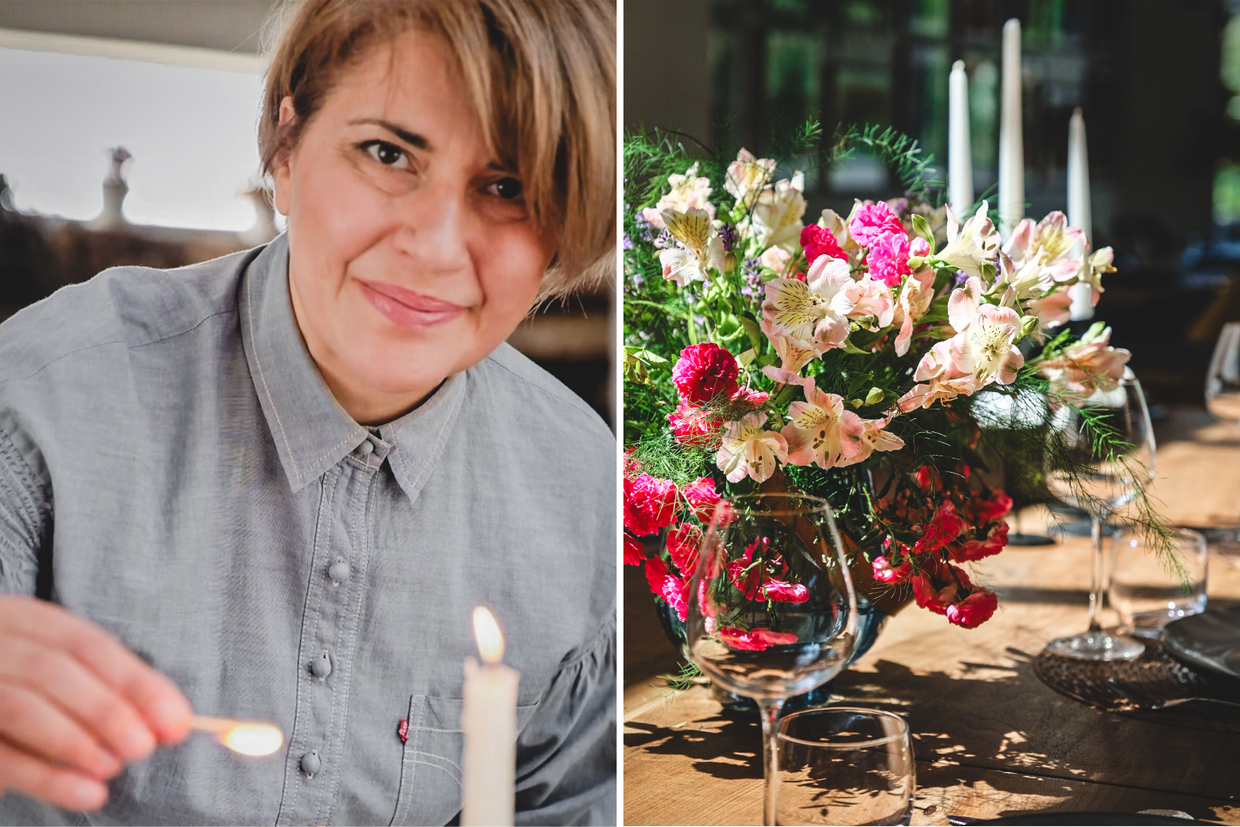
While living in Germany, she had a friend, Karina, who was an incredible cook. One day, Karina made lamb chops — Aghababyan tasted them and fell in love.
‘It was a revelation — the tenderness, the flavour! Now we serve mutton and lamb here as well’.
Aghababyan recalls a similar story involving the local village when she made Vietnamese spring rolls. One of the locals who works at the restaurant said, ‘I won’t try it’, viewing it as unfamiliar, and repulsive, even. Another girl tried it and was amazed, overwhelmed.
‘This doesn’t feel like food from this world’, she told Aghababyan at the time.
Aghababyan explains that back then, ‘everything was unfamiliar. But seven years later, perceptions have changed. That cook may not love everything, but she’s been exposed to something new’.
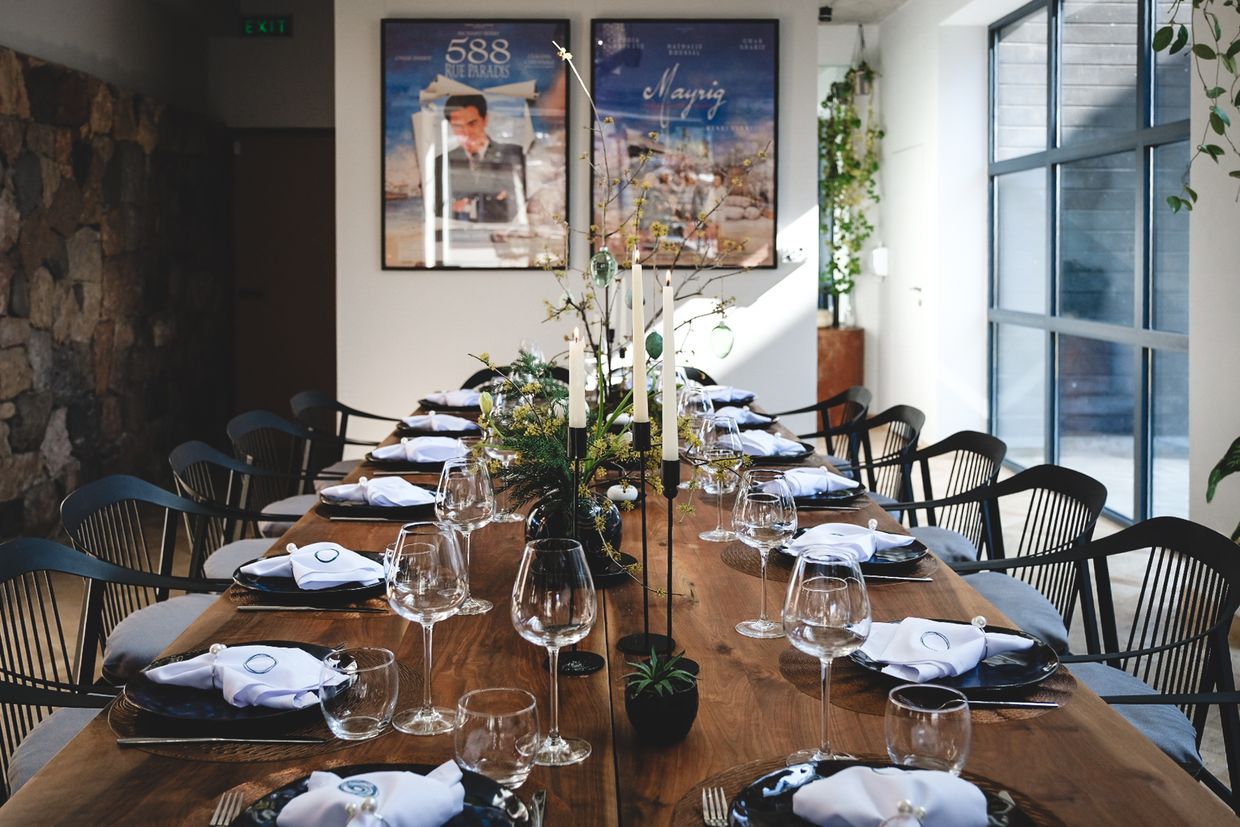
Currently the staff at Perle is entirely local, as are most of the ingredients. Aged cheese is sourced from a woman in the Aragatsotn Province, local beef is from Dsegh, a village in Lori, close to Debed, and chicken is gotten from a farm in Spitak, Lori.
Even honey is sourced from a local beekeeper, Suzanna Ghazaryan, 35, who now works as one of the cooks at Perle, despite having never cooked professionally before.
‘When she opened Perle, I thought I could combine beekeeping with working there. We had a wonderful chef, Asya, who taught me all the little secrets’, Ghazaryan tells OC Media.
Ghazaryan was born and raised in Debed before moving to study at the State Technological College in Vanadzor. For a while, she worked in a fabric shop in the city. Working in Perle, ‘a place full of experiments’, was a drastic change.
‘At first, every taste felt so unfamiliar to me. Even the names of the dishes were hard to pronounce: I kept thinking this wasn’t my place. But then I’d go home and tell myself, “I wonder what new thing I’ll learn tomorrow” ’, Ghazaryan says.
‘A lot has changed in me, my sense of taste, my perception of food’, she adds.

Ghazaryan notes that over time, people from different countries learned about the restaurant and began coming to Debed, each of them ‘bringing something new’.
Despite the high prices, locals are also curious about Perle — Ghazaryan says that sometimes they come by for a coffee or to buy bread; other times they bring their guests to proudly show that such a restaurant exists in their village.
‘We laugh a lot at Perle, and that’s the best sign that we’re in the right place. I earn money from beekeeping, thus I could easily choose not to work here, but the kitchen at Perle is so vibrant, and there’s always something new to learn from Tatev’, she says.
‘Perle shows villagers that you don’t need to wait for a better place or better time. The best place is your own village, and the best time is right now’.










